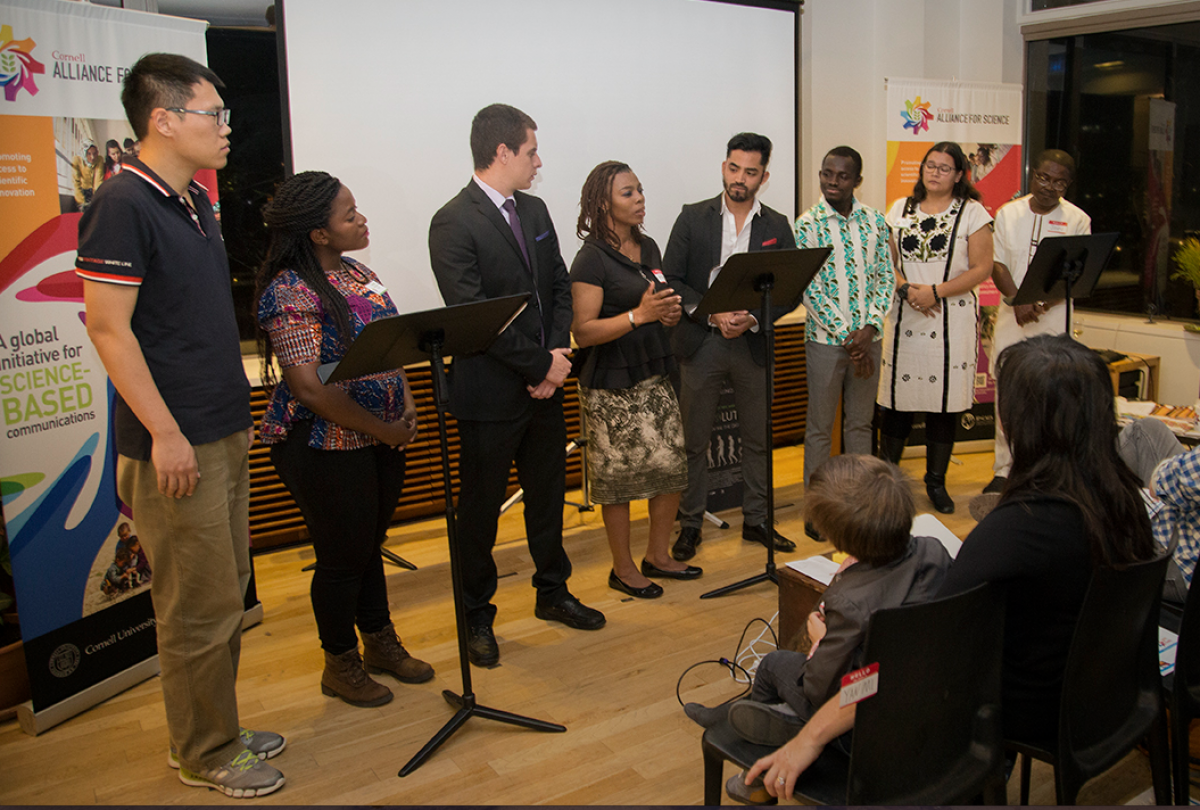
The whirl of the year’s activities coalesced on our website, creating an electronic map of the landscape the Alliance for Science navigated in 2016.
It includes the geographic points of Tanzania, Mexico City, Thailand and Hawaii, where we hosted leadership courses on strategic planning and effective grassroots organizing, and Cancun, where we shared our message of evidence-based decision-making in important climate change deliberations.
We traveled to Bangladesh, where we captured the ongoing success story of Bt brinjal, and India, where a crop scientist is working to save his village’s farms from the ravages of soil salinization.
We spent 10 days in Hawaii, recording stories that became a 30-minute documentary on the divisive battle over GM agriculture in the Islands, and the role of the transgenic papaya in saving family farms.
Along the way, we broke the news about Tanzania’s first GMO field trial to test the drought-tolerant qualities of WEMA’s new hybrid maize, highlighted the accomplishments of women in agriculture, showcased efforts to save the iconic American chestnut.
We reported on scientific conflicts of interest, the nuances of evaluating pesticide statistics, new advances in crop biotech, Burkina Faso’s experience with Bt cotton, scientific studies on the safety of biotechnology, efforts to create cattle resistant to sleeping sickness, and the role of GM crops in addressing climate change.
In August, we welcomed 28 Fellows from 13 nations to our intensive 12-week Global Leadership program on the Ithaca campus, and marked the end of the course with a film festival on agricultural biotech in New York City.
Our 2015 and 2016 Fellows reported on the state of biotech in Chile, climate change challenges in Ghana, a Vegan GMO challenge to Vandana Shiva, grassroots organizing in Africa, shifting political attitudes that favor GM crops in Nigeria, and legal successes for biotech ag in the Philippines.
We also shared the expertise of distinguished thinkers through our on-line speakers series, amplified the voices of farmers growing organic, conventional, and biotech crops, and launched an effort to evaluate peer-reviewed literature as part of our goal to assess the scientific consensus on GMOs.
As we look ahead to 2017, we will continue to be fueled by the inspiration and energy that comes from sharing the compelling stories of those who seek to make a positive contribution to our world.
